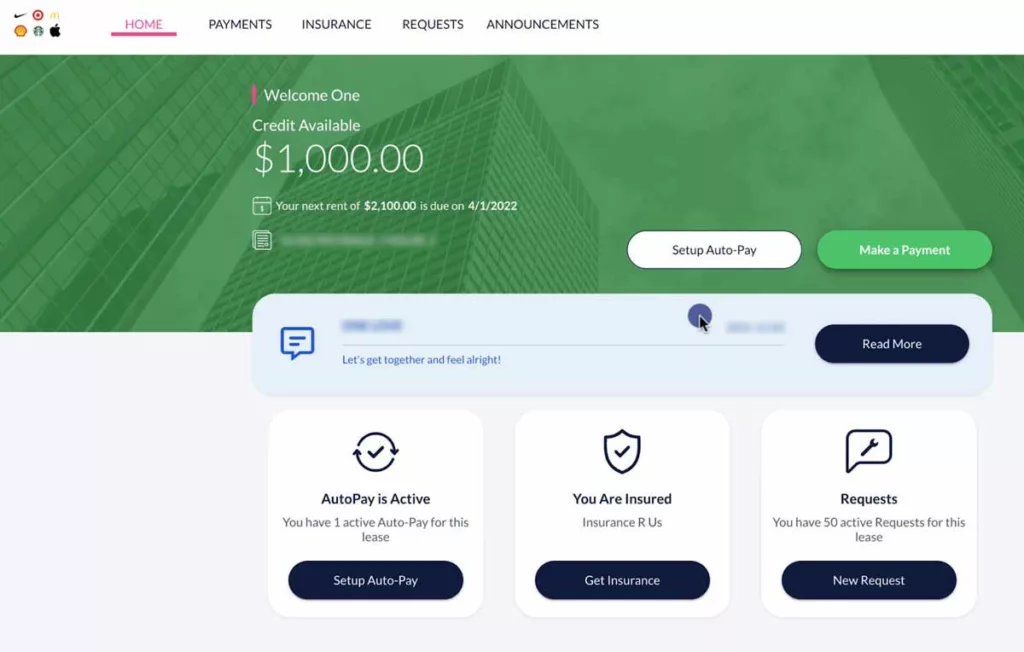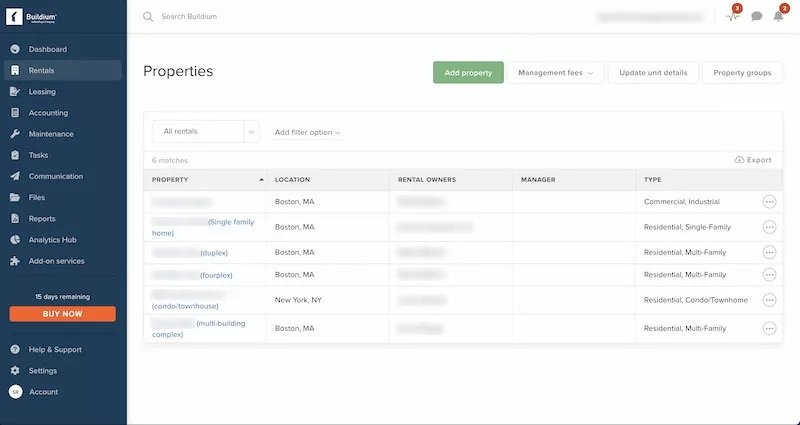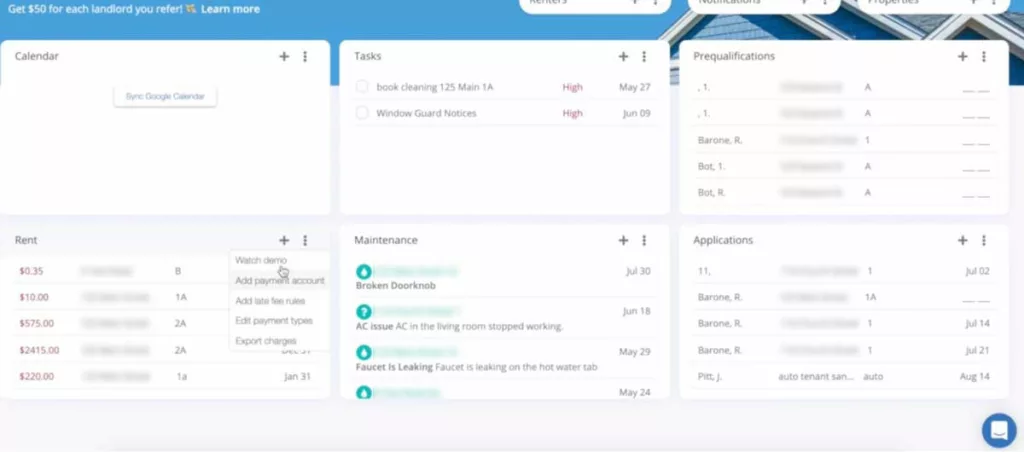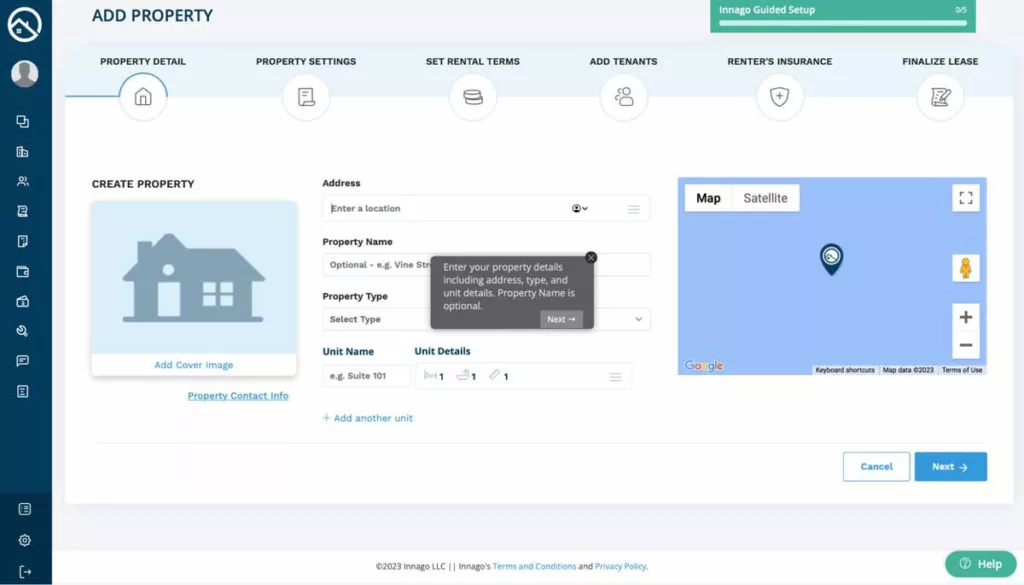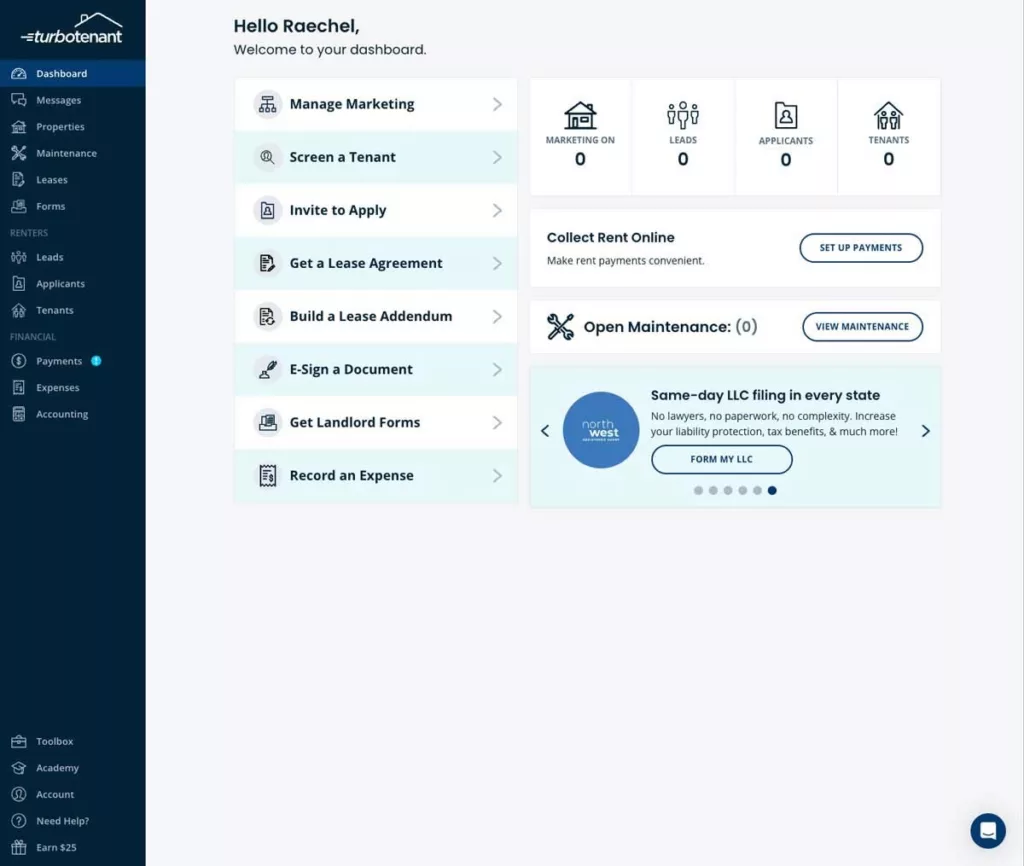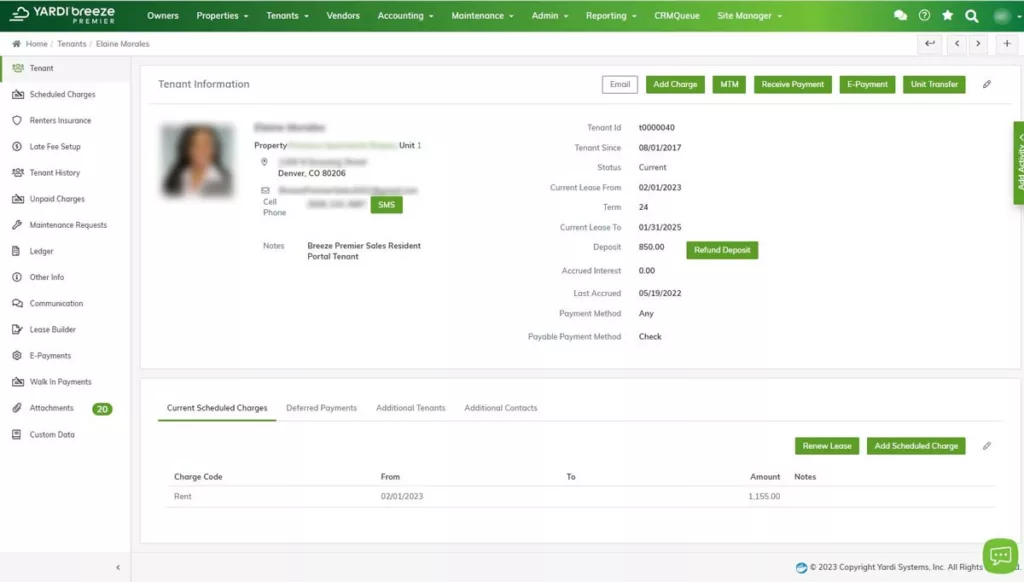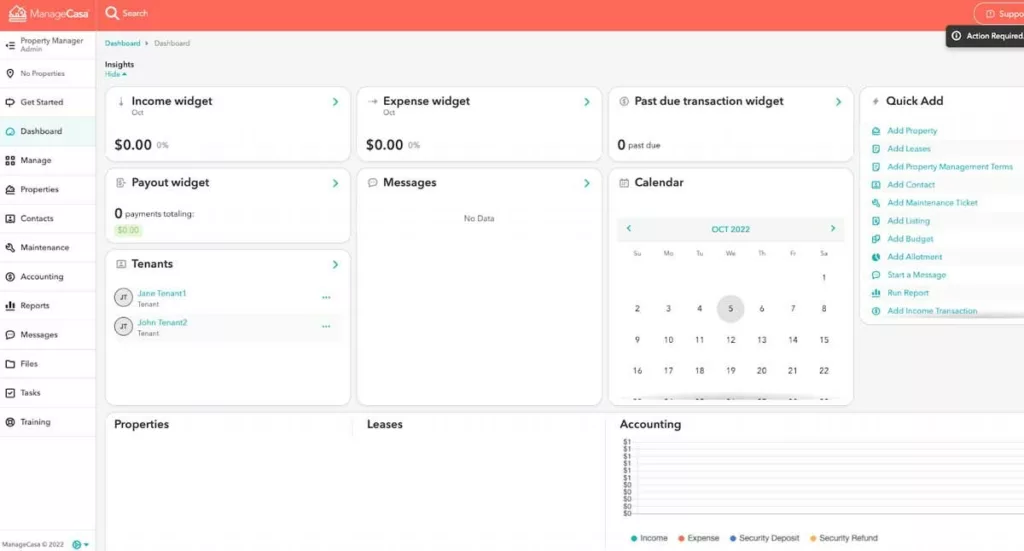Best Property Management Software for Small Landlords
We started with 180 vendors and narrowed it down to our top 7 picks for 2024
Fact Checked
As a landlord, you know that managing properties can be tedious and time-consuming. That’s where rental property management software comes in. With the right platform in place, you can streamline your processes and in turn, improve your bottom line. Since there are countless property management solutions out there, we’ve done the research for you and compiled this list of the top seven options.
Our Top Picks
Property Management Software Reviews
To hone in on the seven best property management platforms, we focused on brand reputation, pricing transparency, features, and customer support. Our team spent hours performing research and testing out various solutions to help you uncover the right software for your particular business. Check out our methodology section to get the full scoop on how we made our choices.
Doorloop
Best for Residential and Mixed Portfolios
Founded in 2019, Doorloop is a cloud-based property management software that aims to streamline the leasing process from start to finish. It automates just about every day-to-day property management task to support both landlords and tenants.
Buildium
Best for Automation
Buildium is a Massachusetts-based company that made its debut in 2004 by two landlords who wanted to simplify property management. It automates a number of processes, such as listing properties, screening tenants, collecting rent, and requesting maintenance.
RentRedi
Best for Rent Collection
RentRedi is a property management software company that allows landlords to manage rentals from wherever, whenever. It offers a separate tenant app for tenants as well as a full range of capabilities for landlords who wish to simplify their processes.
Innago
Best Free Property Management Software for Small Landlords
Innago is free property management software that supports tenants and landlords. Even though it’s free to use, it offers a variety of useful features, like document storage, tenant screening tools, rent payment collection, and financial reporting.
TurboTenant
Best for Easy-To-Use Property Management Software
Headquartered in Colorado and founded in 2015, TurboTenant strives to streamline the rental processes for landlords and tenants. It supports unlimited property listings, online rent collection, basic accounting, and many other features.
Yardi Breeze
Best for Small Landlords With Growing Real Estate Portfolios
Yardi Breeze was designed to “put you in charge of marketing, leasing and managing your portfolio from anywhere, on any device.” It offers two plans, including one with several unique features that can help you scale your business.
ManageCasa
Best Property Management Software for Small Businesses
San Francisco-based ManageCasa made its debut in 2016 as a cloud-based property management platform designed for landlords, property managers, and community associations. You can use it to collect rent payments, view rental applications, address maintenance requests, and more from any device at any time.
Compare the best property management software for small landlords side-by-side
| Brand | Best For | Starting Price | Free Option |
|---|---|---|---|
| Doorloop | Residential and mixed portfolios | $59/month | 24-hour free trial |
| Buildium | Automation | $55/month | 14-day free trial |
| RentRedi | Rent collection | $9/month | None |
| Innago | Free property management software | Free | Free Plan Available |
| TurboTenant | Ease of use | $8.25/month | None |
| Yardi Breeze | Growing real estate portfolios | $1 per unit per month, ($100 minimum per month) | None |
| ManageCasa | Small businesses | $100/month | 14-day free trial |
What is property management software?
Property management software is an all-in-one digital program for landlords and property management companies of all shapes and sizes.
It’s designed to help streamline daily operations, improve cash flow, and automate a variety of tasks like tenant screening, rent collection, maintenance requests, maintenance tracking, maintenance management, work orders, expense tracking, lease renewals, and more.
It brings all the information you need to become a more efficient, profitable landlord to one place. Whether you’re a DIY landlord, residential property manager, commercial property manager, real estate investor, or anyone in between, it’s well worth the investment.
Benefits of using property management software
There are a number of advantages of property management software solutions, including:
- Increased efficiency: Property management platforms take the manual labor out of property management by automating many day-to-day tasks, improving efficiency and increasing profitability. With the right solution, you can spend less time on tedious tasks and more time focusing on improving the tenant experience and growing your business.
- Improved tenant communication: Positive tenant relationships are invaluable if you’d like loyal tenants and a great reputation. Property management software can provide you with communication tools, like automated rent reminders and maintenance updates. You can ensure your tenants are always in the know without the time and hassle.
- Streamlined accounting: It’s not easy to perform accounting as a landlord. This is particularly true if you manage several properties. Most property management software providers allow you to track expenses, log payments, digitize receipts, and create financial reports. They can keep you organized and make tax season far less stressful.
- Money savings: While property management platforms usually require a monthly investment, they may also help you save money by reducing overhead costs, landing and retaining tenants, and increasing efficiency. Depending on your situation and the software you choose, you can save thousands of dollars over the life of your business.
- Scalability: Chances are you want to grow your real estate business. With property management software, you can take manual tasks off your plate and spend your time acquiring more properties, filling vacancies, and retaining tenants.
What are the different types of property management software?
Property management software offers a variety of tools that help property managers, landlords, and real estate professionals manage their properties efficiently. Here are some common types of property management software:
- Residential Property Management Software: This type is designed to manage residential rental properties such as single-family homes, townhomes, multi-family homes, apartments, affordable housing, mobile homes, and even student housing. It includes tenant screening, rent collection, lease tracking, and maintenance requests. A Residential Management Professional (RMP®) designation can also help you improve your business.
- Commercial Property Management Software: Tailored for commercial properties such as offices, retail spaces, industrial warehouses, data centers, and even airports, this software often includes tools for lease administration, commercial tenant management, and financial analysis.
- Vacation Rental Management Software: Ideal for short-term or vacation rentals. Features often include booking management, calendar synchronization, guest communication, and payment processing.
- HOA and Association Management Software: This is used by homeowners’ associations (HOAs) and condominium boards to manage community operations, including dues collection, violation tracking, and maintenance management.
- Cloud-Based Property Management Software: This is more about the delivery method than the type. Cloud-based solutions offer remote access and scalability, often with a monthly or annual subscription model.
- Integrated Property Management Systems: These systems provide a comprehensive suite of tools for managing all aspects of property management, including accounting, tenant and lease tracking, budgeting, and building maintenance.
Each type of property management software serves a unique purpose and target audience, and many offer a mix of the above features to cater to a broader range of needs.
How to choose the right property management software
As you shop around for the best property management software for your business, consider the following:
- Types of properties: Are you looking to manage residential properties, commercial properties, or both? Find a platform that supports the types of properties in your portfolio.
- Ease of use: Opt for an intuitive property management software that you and your team can easily learn and use, regardless of technical skill.
- Budget: Your goal should be to find cost-effective yet reputable property management software that allows you to optimize your operations and meet your goals. If you’re a new landlord or have less than five properties, free or inexpensive software may do the job. However, if you’re an established landlord who manages a number of properties, a more robust, expensive software might make sense.
- Features: Most solutions, including Doorloop, Buildium, RentRedi, and the others on our list, offer a long list of management features, such as tenant management, rent collection, maintenance requests, accounting, custom property websites, and syndicated listings. Make sure you choose a platform that automates your processes and makes your life easier.
- Customer support: Chances are you’ll have questions or issues after you start using your property management software. That’s why exceptional customer support in the form of phone, email, live chat, and a self-serve knowledge base or community forum is important.
You may also want to join a professional organization, such as NPMA or NARPM, and ask other landlords and property managers for feedback on the tools they use to run their real estate businesses.
How much does property management software cost?
Typically, property management software companies charge a per-unit, per-month rate and impose a minimum monthly fee. In most cases, pricing is listed on a dedicated page on each company’s website.
Some vendors, however, require you to contact them directly and schedule a demo before you can get a price quote. The quote you receive will likely be based on the type of properties you manage and the number of units in your portfolio.
Depending on the vendor, you may lock in a discount ranging from 15% to 20% if you prepay for the year.
Here’s a look at starting prices for five of the property management software companies on our list:
| Doorloop | Buildium | RentRedi | TurboTenant | ManageCasa |
| $59/month | $55/month | $9/month | $8.25/month | $100/month |
Property Management Software Frequently Asked Questions (FAQ)
What apps do landlords use?
There are many apps landlords can use to manage their business and streamline their operations. The Buildium app is one example of an app that allows you to collect rent payments, communicate with residents, keep track of maintenance requests, and more while you’re on the go.
How do I organize my rental property files?
You can organize your rental property files with folders or a spreadsheet. However, property management software is a much more efficient and reliable option. Doorloop, TurboTenant, and ManageCasa are three examples of platforms you can use to store and track your documents digitally.
What’s the best free property management software for small landlords?
Fortunately, there are several quality property management solutions for small landlords that are free of charge. We highly recommend Innago, TurboTenant, and ManageCasa, especially if you only manage a few units.
Is there a property management software that integrates with Quickbooks?
Doorloop and RentRedit are two examples of property management software that integrates with Quickbooks. This can simplify your accounting processes and alleviate stress come tax time.
Methodology: How we chose the best property management software for small landlords
Our team chose 30 well-known property management vendors from over 180 options. From there, we narrowed our list down to seven property management software companies that excel in a variety of categories, including pricing, customer support, features, and more.
We scored each vendor on a scale of 1 (poor) to 5 (excellent) across the following criteria, each worth 25% of the total score:
- Features: The most important features to us include tenant screening, online lease tracking, tenant portals, comprehensive accounting capabilities, property websites, and online tracking for maintenance requests. We make sure every vendor on our list offers them.
- Pricing: Not only did we examine how much value each vendor provides compared to the prices they charge, we also looked at how transparent their pricing is. Platforms with transparent pricing as well as free trials or free demos received extra points.
- Customer support: Property management software that has a reputation for excellent customer support via multiple channels, like phone, email, and chat scored high. We also prioritized companies that included one-on-one onboarding in their monthly rates instead of charging an additional fee for it.







